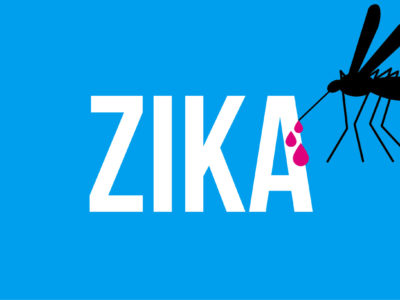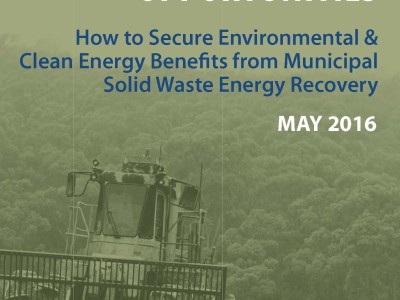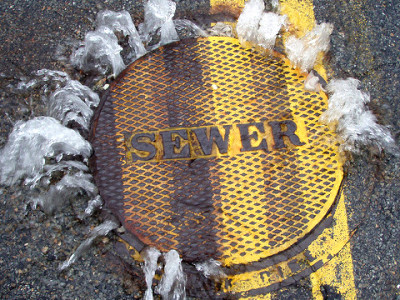Pollution & Health
Major Settlement Announced in Volkswagen Emissions Fraud Litigation
$14.7 Billion Civil Enforcement Settlement is a Victory for Consumers, Environmental Prosecutors
Federal and state environmental prosecutors today announced a proposed settlement of government civil enforcement litigation they’ve pursued against Volkswagen in response to the automaker’s acknowledged efforts to cheat federal and state auto emission standards and defraud consumers. The complex settlement, lodged with the assigned U.S. district court judge in San Francisco, requires Volkswagen to pay …
Continue reading “Major Settlement Announced in Volkswagen Emissions Fraud Litigation”
CONTINUE READINGBarry Goldwater, Environmentalist
Goldwater was passionate about saving the planet.
Barry Goldwater’s views on the environment didn’t have much in common with those of the present-day conservatives who are his ideological descendants. His 1970 book, The Conscience of a Majority, has half a chapter about the environment. “Our job,” he said, “is to prevent that lush orb known as the Earth . . . from …
Continue reading “Barry Goldwater, Environmentalist”
CONTINUE READINGThe Irony of a Developing Nation’s Climate Agenda
The challenge of developing and decarbonizing at the same time
Mexico has been busy. Or at least, its energy and environmental ministers have been. Over the last several years, Mexico has held its first auction for renewable energy contracts, opened its energy market to private competitors, and increased its renewable energy capacity by more than thirty times the level in 2008. At the same time, …
Continue reading “The Irony of a Developing Nation’s Climate Agenda”
CONTINUE READINGStatutory Standing After the Spokeo Decision
A non-environmental case opens the door to new arguments about standing.
One of the recurring questions in standing law is the extent to which Congress can change the application of the standing doctrine. A recent Supreme Court opinion in a non-environmental case sheds some light – not a lot, but some – on this recurring question. The Court has made it clear that there is a …
Continue reading “Statutory Standing After the Spokeo Decision”
CONTINUE READINGReinventing Parks & Rec.
We need to protect city parks, not just rural wilderness.
“The few green havens that are public parks” is a phrase from the Supreme Court’s opinion in the Overton Park case. The case involved a plan to build a highway through the middle of a major park in Memphis. The Court put a heavy burden on the government to justify the project: “The few green havens …
Continue reading “Reinventing Parks & Rec.”
CONTINUE READINGCalifornia Fines SoCal Gas for Corroded Pipe Casings
The CPUC issued the fine after finding dozens of violations
The California Public Utilities Commission (CPUC) issued a citation for violations of a federal regulation on Southern California Gas Co. (SoCal Gas) totaling $2.25 million. The citation is based on forty-five violations of a federal regulation requiring that operators “take prompt remedial action to correct any deficiencies indicated by” external corrosion monitoring. According to the May …
Continue reading “California Fines SoCal Gas for Corroded Pipe Casings”
CONTINUE READINGIs Protecting Public Health Now a Partisan Issue?
Congress’s failure to deal with the Zika threat is a symptom of a bigger problem.
Congress seems to be unable to come up with funding for an effort to combat the zika virus. Instead, congressional leaders told the government to use existing funding, so it has been forced to divert hundreds of millions of dollars from fighting ebola. (You remember that Congress was completely frenzied about the risk of ebola in …
Continue reading “Is Protecting Public Health Now a Partisan Issue?”
CONTINUE READINGShould California Recover More Energy From Municipal Solid Waste?
New Berkeley Law report explores policy options, with KALW radio show discussion tonight at 7pm
Every year, Californians send about 30 million tons of trash to landfills. While the state’s residents do their part to reduce, reuse and recycle, that’s still a whole lot of garbage. It’s not only a land use issue, it’s a climate change issue: as landfill waste decays, it emits methane, a powerful greenhouse gas. Many …
Continue reading “Should California Recover More Energy From Municipal Solid Waste?”
CONTINUE READINGOf sewage spills and citizen suits
New Berkeley Law report examines citizen actions addressing sanitary sewer overflows in California
(This post is co-authored with Nell Green Nylen and Michael Kiparsky.) Every day, Californians produce millions of gallons of wastewater. We tend to avoid thinking about what flows down our drains, but how we deal with sewage is a critically important aspect of public and environmental health. Most communities in California rely on an extensive …
Continue reading “Of sewage spills and citizen suits”
CONTINUE READINGFormer Massey Energy CEO Sentenced to Prison for Actions Leading to 2010 Coal Mine Disaster
What Broader Environmental and Worker Safety Enforcement Lessons Can Be Learned Here?
A federal district judge on Wednesday sentenced Don Blankenship, the former Chief Executive of Massey Energy, to serve one year in federal prison–the maximum term allowed by law–and to personally pay a criminal penalty of $250,000 for Blankenship’s acts of omission and commission that led to the notorious 2010 coal mining disaster at Massey’s Upper …
CONTINUE READING











